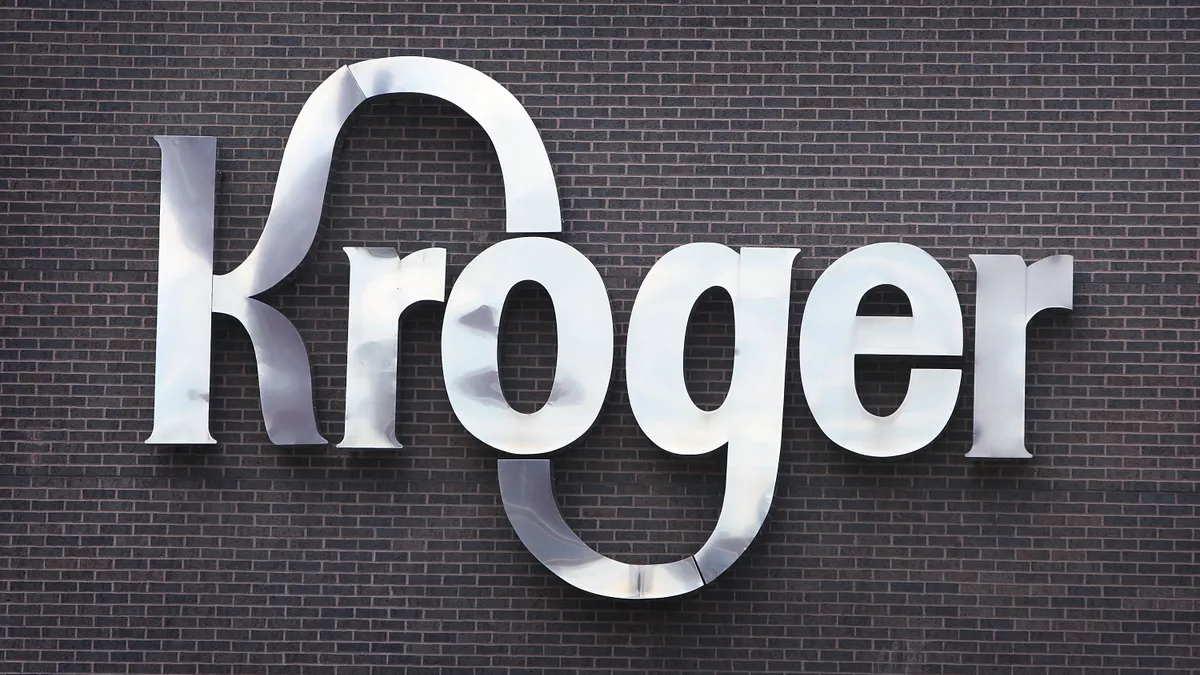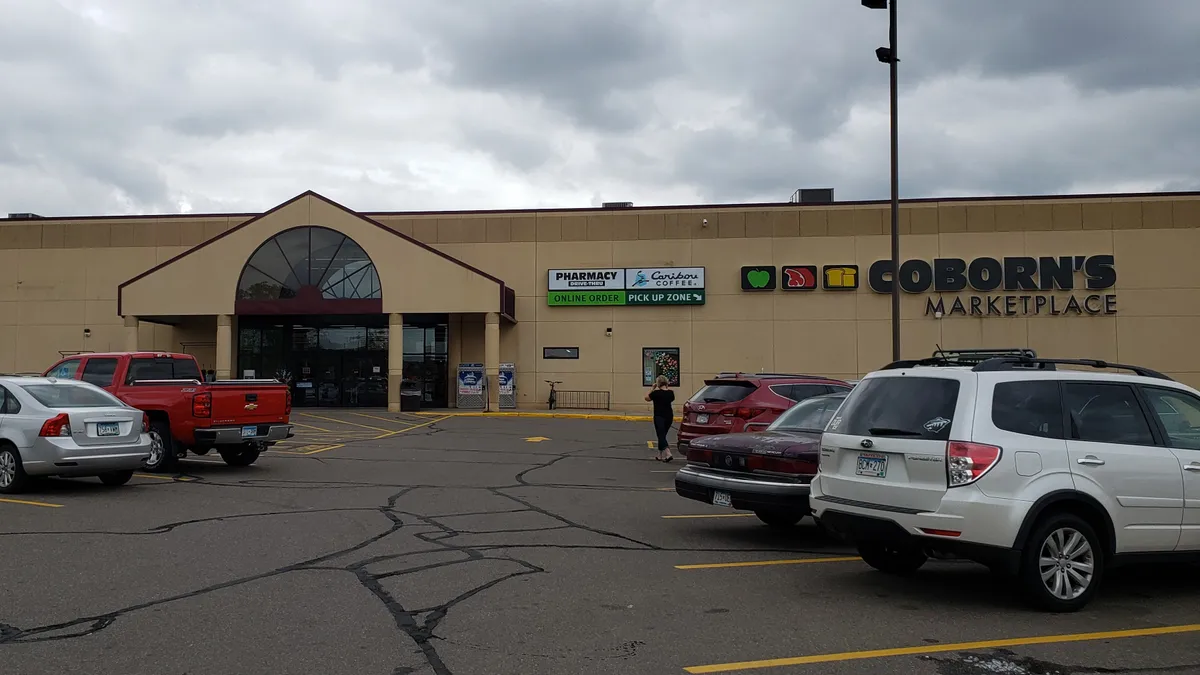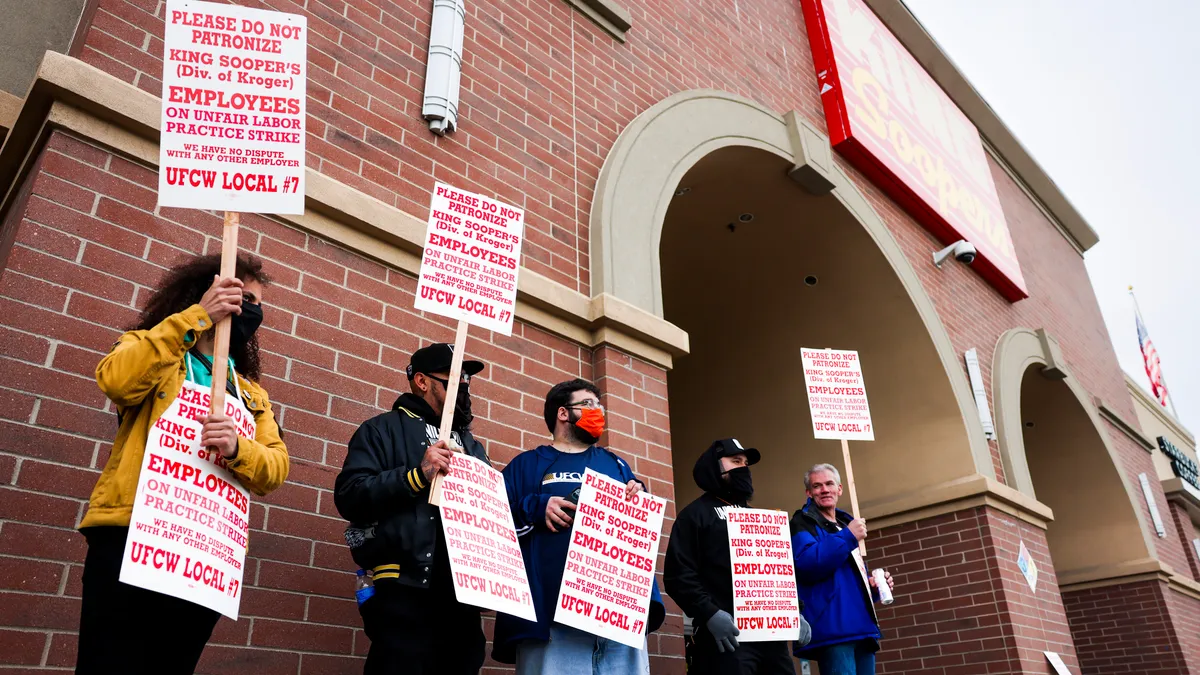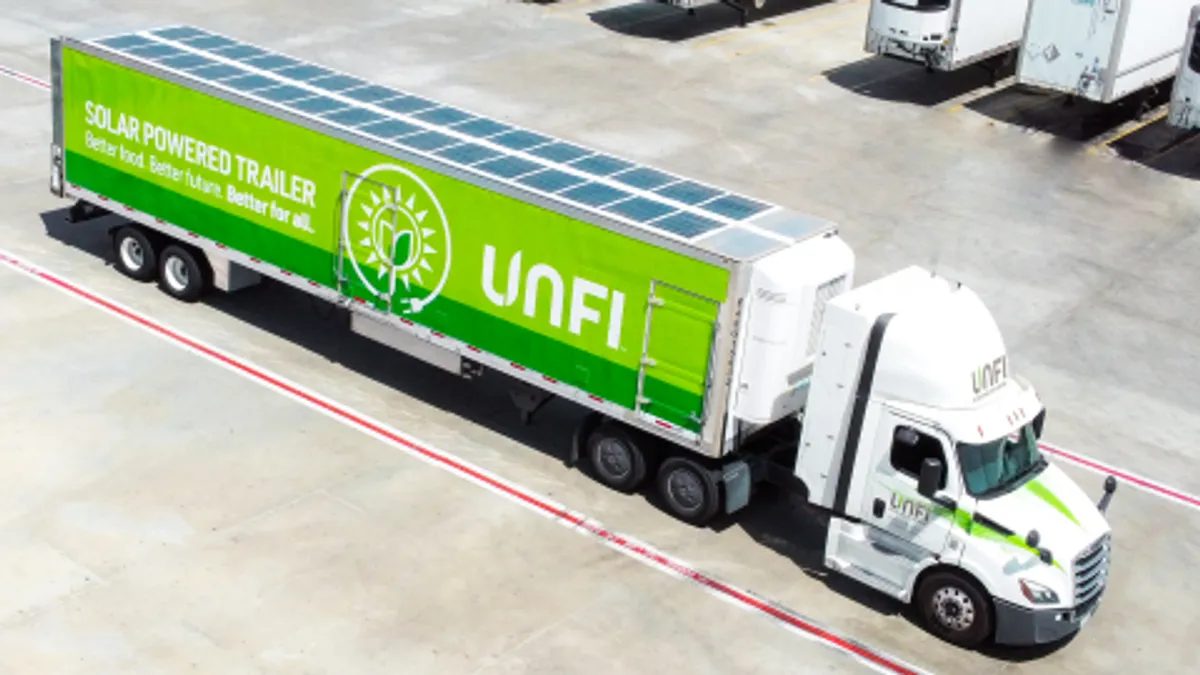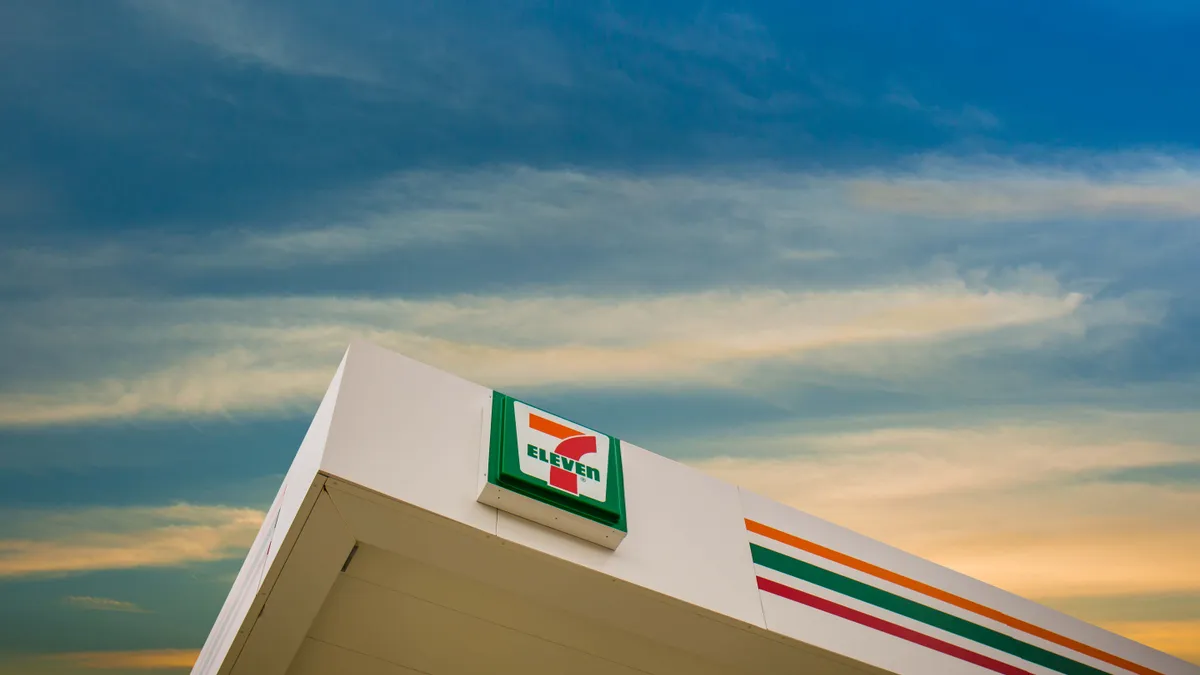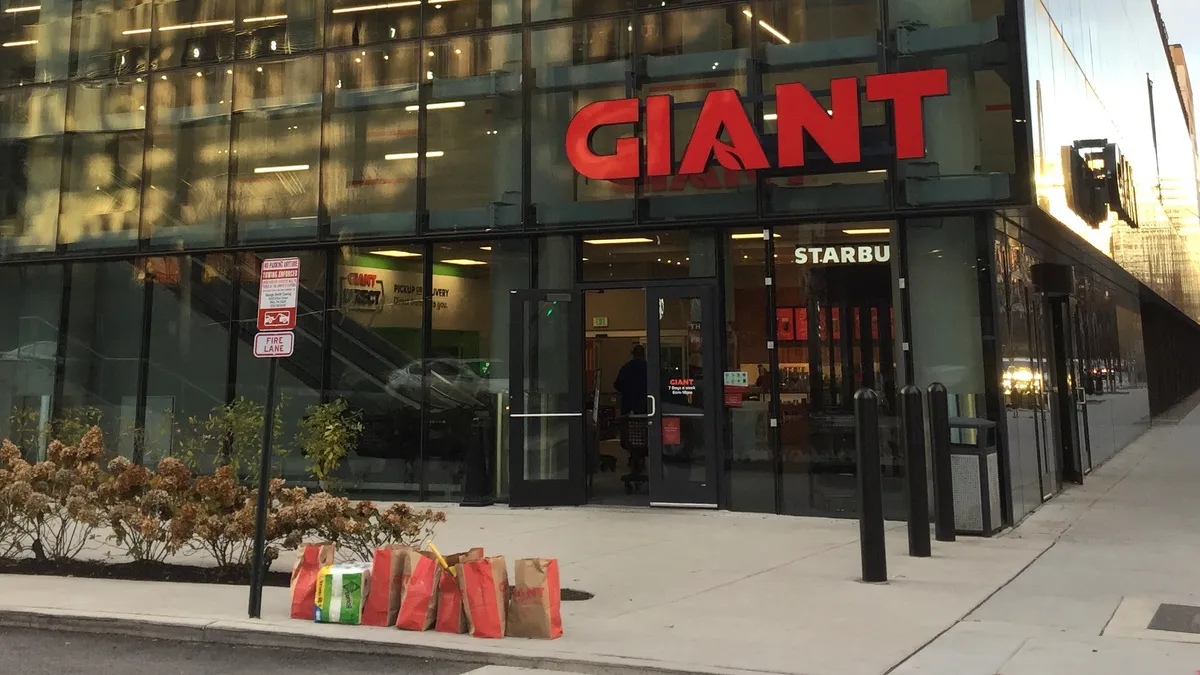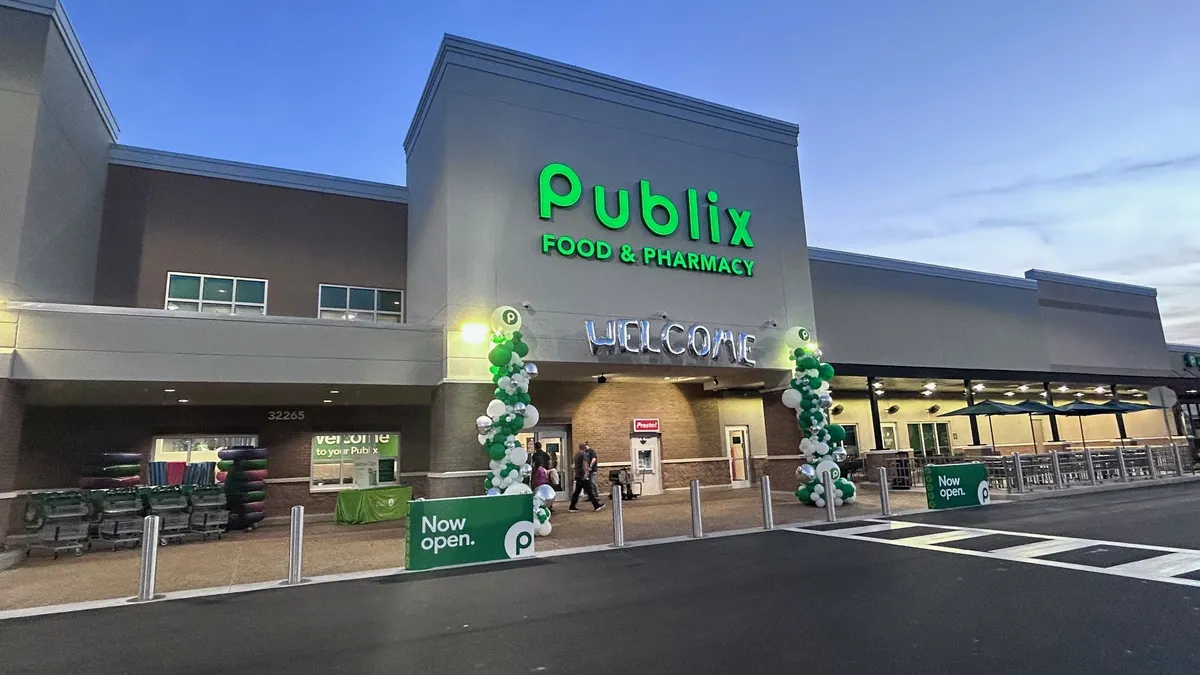Pardon the Disruption is a column that looks at the forces shaping food retail.
The Federal Trade Commission’s decision to challenge the merger between Kroger and Albertsons brings to a close a long and complex review process that began more than a year ago.
The agency concluded that the proposed $24.6 billion deal would not — despite reassurances from both supermarket chains — protect consumers from rising prices, safeguard workers and ensure that the hundreds of stores the companies aimed to offload could continue to compete in their respective markets.
The FTC reserved some of its harshest words for the chains’ divestiture plan to C&S Wholesale Grocers, noting that C&S would struggle to fashion a “functioning business” out of the castoff stores and other assets, let alone a company that could compete with Kroger and Albertsons.
The decision dealt a major blow to Kroger and Albertsons, which had initially hoped to get the merger approved at the beginning of this year and later pushed that goal back to later in 2024. But the deal is far from dead. Kroger said Monday it plans to fight the FTC in court, setting off what will likely be another months long process.
Will Kroger succeed in its bid to acquire Albertsons? The FTC’s challenge is sweeping and maps out firm opposition to the deal. But the agency’s recent track record in court has been spotty. Ultimately, the merger’s fate will likely rest in the hands of the federal judge appointed to the case.
Here are my topline thoughts on the FTC’s challenge to the supermarket megamerger.
The FTC’s lawsuit seemed inevitable
The FTC’s decision didn’t seem to come as a major surprise to people who have been following the agency and the Justice Department, its counterpart in dealing with antitrust matters.
Regulatory agencies under the Biden administration have been actively challenging big mergers. In late 2022, the FTC announced that it would challenge Microsoft’s $69 billion bid to acquire Activision Blizzard, in what was the gaming industry’s largest deal. A few months later, the Justice Department along with three attorneys general sued to block JetBlue’s bid to acquire low-cost carrier Spirit Airlines.
As legal experts noted in a story I wrote shortly after Kroger and Albertsons announced their proposed merger in October 2022, the FTC under chairwoman Lina Kahn has zeroed in on planned mergers’ impacts on consumers, workers and local markets.
“The agency has become far more muscular in opposing large mergers, and one of this scale was always unlikely to escape its scrutiny and opposition,” wrote Neil Saunders, managing director with GlobalData Retail, in comments emailed Monday.
The drumbeat of opposition to the deal also didn’t look good. Lawmakers, labor unions and consumer groups all lent their voices to what became one loud “No!” vote that signaled the uphill challenge the supermarket chains faced.
Indeed, both companies’ stock prices barely budged after the announcement, indicating that investors expected this move.
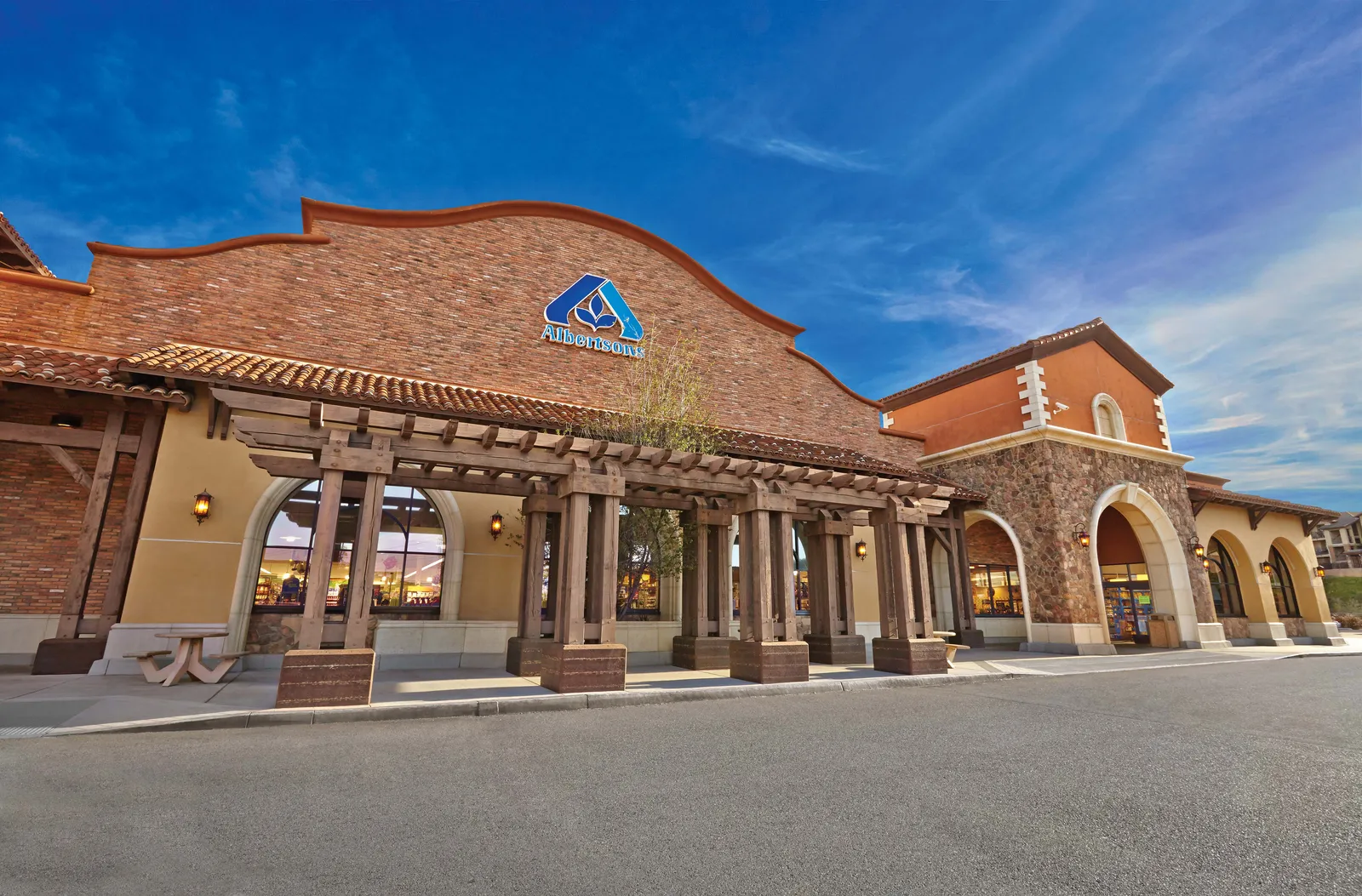
The agency gave a big thumbs down to the C&S deal
In tapping C&S Wholesale Grocers as the company to inherit the more than 400 stores it planned to divest in order to appease regulators, Kroger was clearly looking to avoid a rerun of the 2015 debacle that saddled tiny northwest grocer Haggen with a trove of stores it couldn’t manage.
Kroger pointed to C&S’s considerable size and industry experience. But the agency wasn’t convinced. In its filing Monday, the FTC noted that C&S is an inexperienced retailer, operating just 23 Piggly Wiggly and Grand Union stores along with one pharmacy. The agency also pointed to a statement C&S made in a 2021 financial report saying it did not want to grow its retail operations or run stores over the long term.
“As a result of its supermarket retail operating deficiencies and past failures, C&S has spent most of the last decade seeking to avoid being a supermarket operator,” the FTC noted.
The agency was also highly critical of the stores and other assets that Kroger and Albertsons proposed to offload, noting that together they created a “hodgepodge” that would barely constitute a viable business, much less one that could compete with a reinvigorated Kroger-Albertsons.
“The proposal completely ignores many affected regional and local markets where Kroger and Albertsons compete today,” the FTC said in its announcement. “In areas where there are divestitures, the proposal fails to include all of the assets, resources, and capabilities that C&S would need to replicate the competitive intensity that exists today between Kroger and Albertsons.”
I always found it hard to believe that one company could effectively manage all these stores spread across 17 states. C&S’s empire would include a heavy concentration of stores on the West Coast and a dusting of locations across various other regions, including the mid-Atlantic, the Southeast and Alaska.
To remedy this, Kroger may need to divest additional stores and bring in buyers with more experience running stores in some of these markets, said Arun Sundaram, vice president of equity research for CFRA Research, in an emailed note.
The FTC focused on a narrower definition of grocery competition
When Kroger and Albertsons announced their merger, experts wondered how the FTC would frame the question of competition in the grocery industry. Would the agency look just at supermarkets and the impact this deal would have on them — or would it take a more expansive view and factor in competition with Walmart, Amazon, club retailers and discount grocers?
Given how the industry has grown and fragmented over the past few decades, to the point where Kroger and Albertsons combined have a smaller market share than Walmart, the latter interpretation seems to make the most sense. Kroger and Albertsons said in statements they issued to the media after the FTC’s announcement yesterday that the deal’s failure would only strengthen Walmart, Amazon and Costco.
The FTC, however, focused on the impact the merger would have on competition and consumer behavior within the supermarket channel, noting that a price increase at a “hypothetical monopolist of supermarkets” would not prompt supermarket consumers to shop at an alternative format like a club store or a discounter.
“The reason consumers would not shift a significant enough volume of purchases is because these non-supermarket retail offerings provide a very differentiated customer experience,” the agency noted.
This reasoning seems outdated, given the growing market share that discounters, specialty grocers and others have gained over the years, often at the expense of supermarkets. It will be interesting to see how the FTC defends this position. It will likely be an area that Kroger and Albertsons will target in their case.
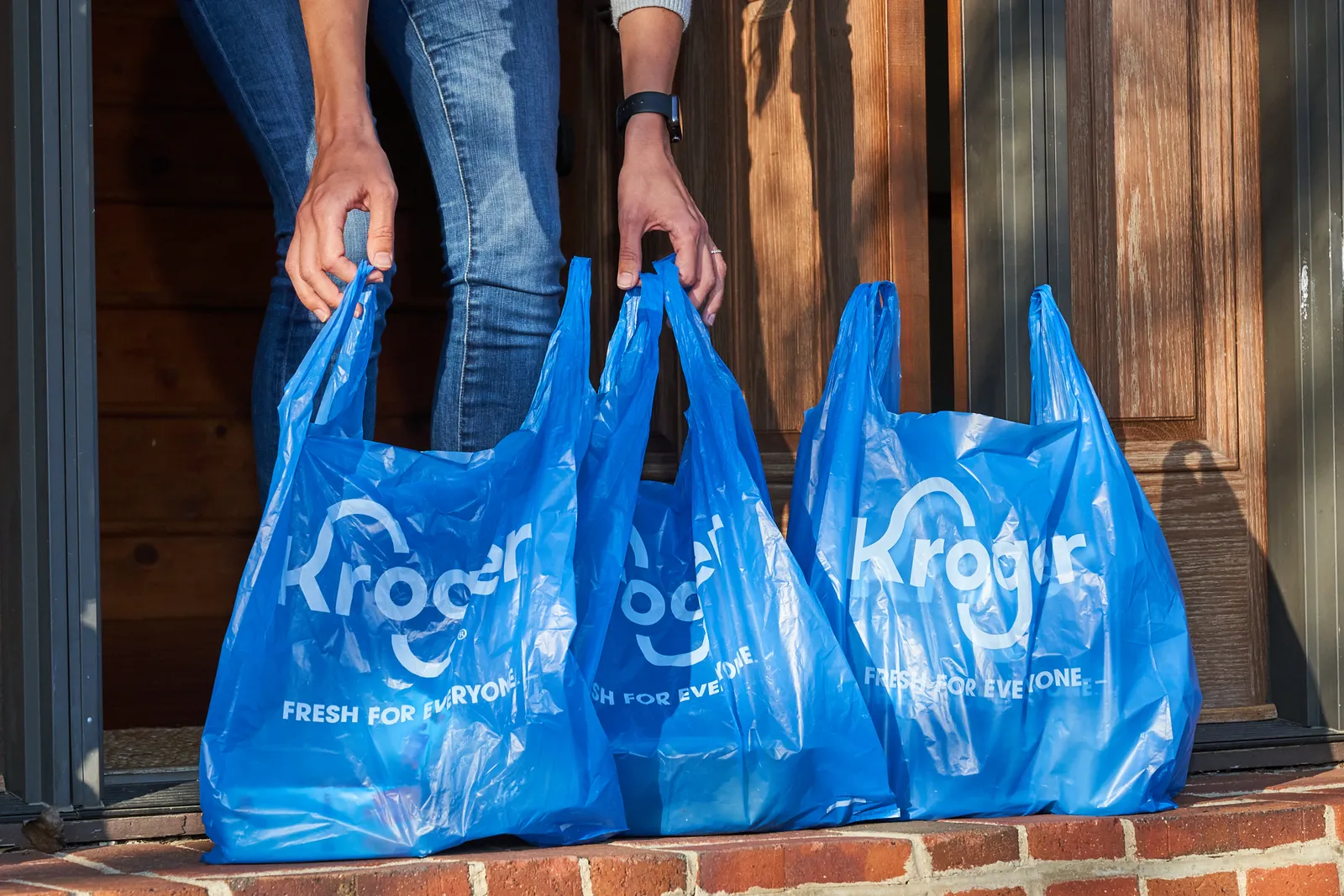
The deal is far from buried
Kroger and Albertsons stumbled in trying to clear this first major hurdle. But the deal can still go through if the companies prevail in court.
I expect they’ll try to refute the FTC’s claims regarding higher prices and worker benefits while also making the case that its combined scale will actually boost competition with other large companies in an industry that’s rapidly scaling up.
Kroger and Albertsons may feel pretty good about their chances in court, given the FTC’s poor record in litigating merger challenges. Last summer, a federal judge in California ruled that the agency had failed to show the merger between Microsoft and Activision would stunt competition and harm consumers. Early last year, a federal judge denied the agency’s request for a court order stopping social media giant Meta’s purchase of a virtual-reality startup.
“Two and a half years into Khan’s tenure, the FTC has lost every single merger challenge it has brought through litigation across both federal and administrative court without even a single win in litigation,” Yale experts Jeffrey Sonnenfeld and Steven Tian wrote in a December op-ed for Fortune.
However, industry observers should also keep in mind the result of JetBlue’s acquisition attempt. Like Kroger and Albertsons, that air carrier was trying to compete with the industry’s largest players — in this case, legacy carriers Delta Air Lines, American Airlines, Southwest Airlines and United Airlines. But in January, a federal judge sided with the Department of Justice, ruling that the proposed merger would harm consumers who relied on Spirit’s low-price fares.



